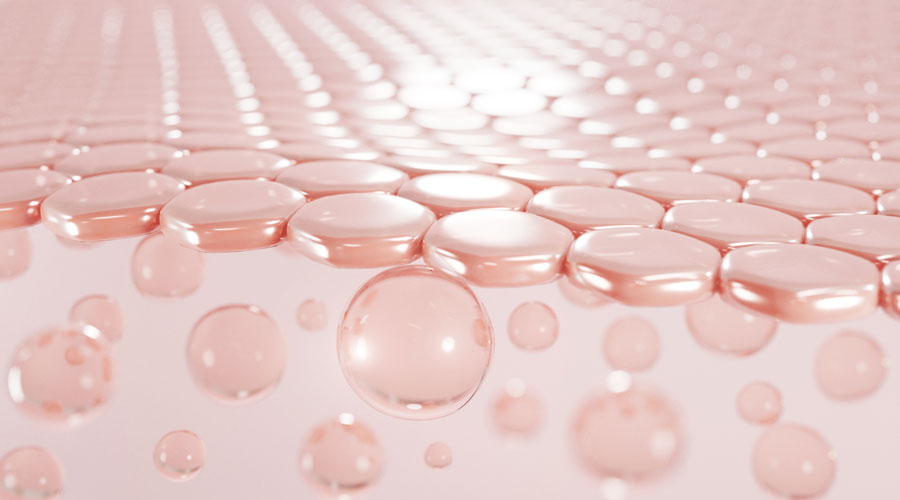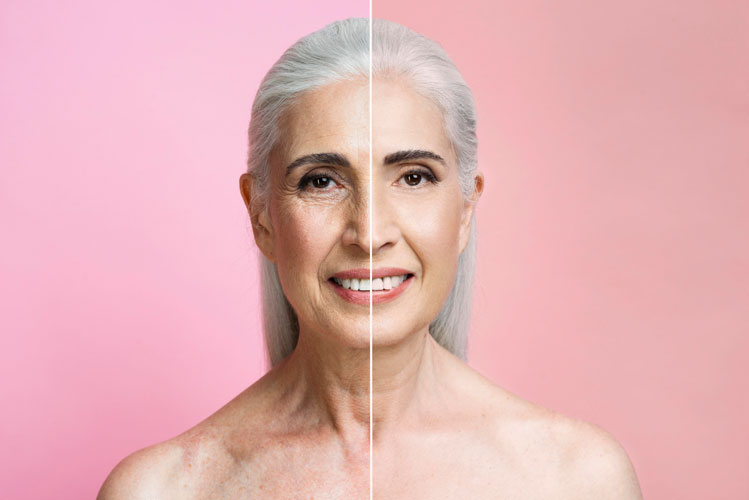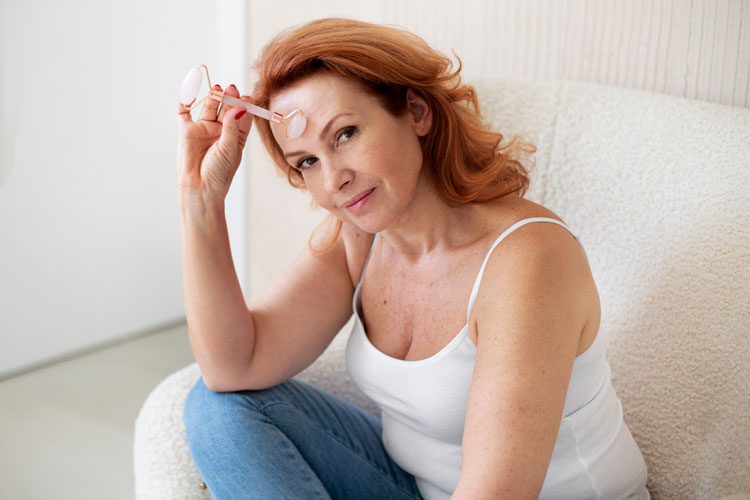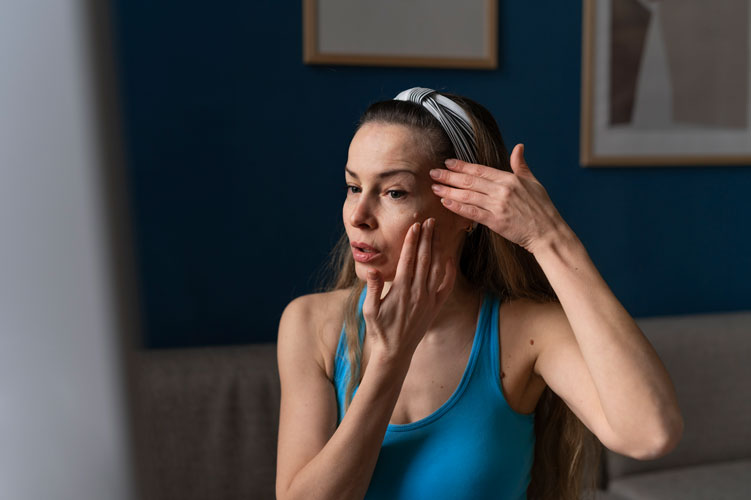Understanding Collagen Loss and How to Reverse It

Collagen is the most abundant protein in the human body. It plays a major role in skin firmness, the strength of connective tissues, and the health of skin cells. Over time, as collagen levels decline, visible markers of aging linked to longevity and healthy aging become more apparent, including fine lines, sagging skin, and slower healing. Understanding why you lose collagen and learning how to boost collagen production can help you maintain both optimal skin health and joint strength as you age.
What Is Collagen and What Does It Do in the Body
Collagen acts as the glue that holds your skin, muscles, tendons, and bones together. This essential protein creates a strong framework of collagen fibers for smooth skin texture and flexible joints. There are different types of collagen, but the most important for skin and tissue health are Type I, II, and III. These forms of collagen are found in bones, tendons, skin, cartilage, blood vessels, and muscle tissue. When collagen levels are high, your skin remains firm, your joints stay flexible, and your muscles recover more easily from stress.
Why Collagen Loss Happens as You Age

Natural collagen production slows as part of the aging process, often starting as early as your mid-20s. The body’s ability to stimulate collagen synthesis decreases steadily with age. By the time you reach your 40s, collagen breakdown outpaces collagen growth, causing visible and physical signs such as wrinkles, sagging skin, and joint stiffness.
Sun exposure is one of the fastest ways to trigger accelerated collagen breakdown. Ultraviolet rays damage the collagen layer under the skin, leading to uneven tone and loss of elasticity. Smoking introduces toxins into the body that interfere with oxygen delivery to skin cells and weaken the body’s ability to promote collagen synthesis. A poor or unbalanced diet lacking in nutrients like vitamin C, vitamin E, amino acids, zinc, and copper slows the production of new collagen and limits skin repair.
Stress can also block the pathways that stimulate collagen production, as high cortisol levels slow collagen regeneration and disrupt the skin’s natural repair cycle. Lack of sleep further reduces the body’s ability to maintain collagen health and promote proper cell turnover.
Signs and Symptoms of Collagen Loss
The effects of lower collagen levels can be seen and felt over time. Common signs of collagen loss include thinner skin, reduced skin elasticity, deeper wrinkles, sagging skin, rougher skin texture, joint stiffness, slower wound healing, and longer muscle recovery after physical activity.

How to Reverse Collagen Loss
Although aging skin is natural, you can support collagen production through targeted habits, nutrition, supplements, and treatments.
Foods That Support Collagen Production
A balanced diet is a powerful tool for collagen health. Vitamin C, found in citrus fruits, helps stimulate collagen synthesis. Zinc and copper support the stability of collagen structure, while amino acids such as glycine, proline, and lysine (found in bone broth) provide the building blocks needed for collagen formation.
Hyaluronic acid is another key nutrient for maintaining healthy skin. It helps keep skin hydrated, which supports both the skin barrier and the appearance of firm, hydrated skin.
Collagen Supplementation for Skin and Joint Health

Collagen supplementation is a proven way to support natural collagen production. Collagen peptides and collagen hydrolysate are forms of hydrolyzed collagen, meaning they are broken down into smaller, easy-to-absorb units. These supplements allow your body to deliver the materials needed for collagen growth more efficiently.
Clinical studies suggest that collagen peptides can reduce wrinkles, improve skin hydration, restore skin firmness, and improve joint comfort. The most effective collagen supplements often include vitamin C, which is essential for helping your body synthesize new collagen.
Professional Treatments That Stimulate Collagen Growth
In addition to diet and supplements, professional treatments can directly stimulate collagen growth. Microneedling creates small injuries on the skin’s surface, triggering new collagen formation as part of the healing process. Laser therapy reaches deeper skin layers and encourages the body to replace damaged collagen with fresh fibers. Radiofrequency treatments and dermal fillers can improve the appearance of aging skin by restoring lost volume and supporting collagen regeneration.
How to Protect Existing Collagen From Breakdown

Preserving the collagen you have is just as important as generating more collagen. Wear sunscreen daily to protect against UV damage. Avoid smoking to prevent toxin-related collagen breakdown. Manage stress to keep cortisol levels stable, allowing your body to stimulate collagen synthesis naturally. Prioritize sleep, since nighttime is when the body focuses on collagen regeneration and promotes cell turnover. Use skin creams rich in hyaluronic acid, peptides, and antioxidants like vitamin E to maintain a healthy skin barrier and extend collagen lifespan.
Managing Collagen Decline Over Time
Collagen is the foundation for smooth, strong, and youthful-looking skin. It supports skin texture, skin elasticity, connective tissues, and joint health. While age-related collagen loss is inevitable, making smart choices helps slow the process and even reverse some of its effects. A balanced diet, hydration, collagen supplementation, skin-friendly lifestyle habits, and professional collagen treatments can work together to enhance collagen production and protect your skin long-term.
Professional Collagen Treatment with Tucson Wellness MD
At Tucson Wellness, we help people create personalized plans to stimulate collagen production, maintain healthy skin, and support joint and muscle recovery. If you want to improve your skin firmness, reduce signs of aging, or protect your overall collagen health, we are ready to guide you toward safe and proven solutions.
Visit our website to start your journey to healthier, more resilient skin today.
Frequently Asked Questions About Collagen Loss
What causes collagen loss in the body?
Collagen loss occurs naturally with age, usually starting in your mid-20s. Factors that speed it up include sun exposure, smoking, chronic stress, poor sleep, nutrient deficiencies, and inadequate protein intake.
At what age does collagen start to decline?
Collagen production begins to slow in your mid-20s and declines steadily over time. By your 40s, collagen breakdown typically outpaces new collagen formation.
What are the first signs of collagen loss?
Early signs include fine lines, reduced skin elasticity, dull or rough skin texture, slower healing, joint stiffness, and longer muscle recovery times.